Longform
Unpleasant Men
This morning I read the whole of the Vulture article about Neil Gaiman. That link’s to an archived copy, because someone said on Facebook that the original has had the references to Scientology removed because of legal threats. And also it’s paywalled.
It’s so depressing that a man who seemed so decent, so generally a positive force in the world, can turn out to have been an abuser all these year. Allegedly, I suppose I must say.
You know, Paul Cornell included Gaiman as a character in one of his Shadow Police stories, The Severed Streets. If I remember the ‘Neil Gaiman’ character was a villain. We took it as fun at the time; but I wonder if Cornell had an inkling that he wasn’t the nice guy he seemed.
In other shitty-men news, Matt Mullenweg has been blowing up most of the good feeling people have about WordPress over the last few months. I’m glad I moved my site off it a few years ago. But now he’s attacked a woman who used to work on WordPress but hasn’t for years. For no very obvious reason, it seems.
Just being shitty.
Guess Who's Coming to Dinner, 1967 - ★★★½
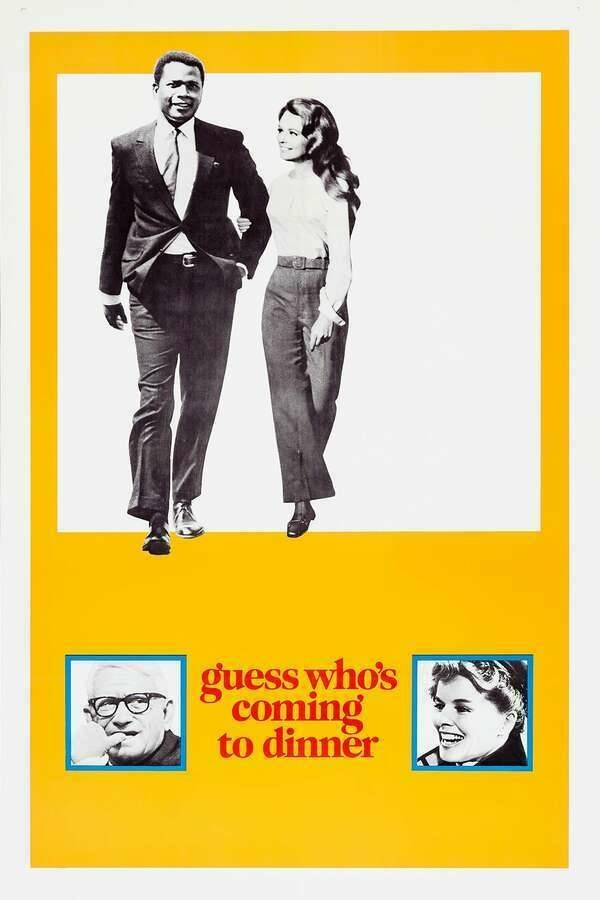
Surprisingly funny in places, a film about race in America in the sixties. Still relevant today, in some circles at least, I'd imagine.
Highly enjoyable, even if the point is extremely heavy-handed at times.
📚 Books 2024, 26: Conclave by Robert Harris

After my recent viewing of the film based on this, my daughter got me the book for Christmas.
It’s surprising how compelling a book can be when you know exactly what’s going to happen, and it’s about something that you wouldn’t normally give a toss about. Though on the latter, I suppose the boy can leave the church, but it always leaves its mark, or something.
Anyway, it turns out this Harris guy can really write. Who’d’ve thought?
I note with interest that the ‘why this story, why now’ question that I mentioned when writing about he film, never even crossed my mind while reading this. I approach a book with a different set of expectations from how I do a film, maybe.
📚 Books 2024, 25: The Bridge of San Luis Rey by Thornton Wilder
Finished reading several weeks ago, in fact. I’m way behind with the change of year.
Anyway, this is an odd little book. I stress the ’little’ because it’s very short. We’re in Peru. An ancient rope bridge, of Inca origin, collapses one day, killing the five people who were crossing it. A priest, Brother Juniper, witnesses the event and decides to use it to prove God has a plan for humans.
The narrator, however, tells us that Juniper’s eventual vast book on the subject was derided, destroyed, and in any case incomplete. The narrator knows things about the people that Juniper never learned. How the narrator knows these things is never stated — we might assume it’s because the narrator is also the author, though that’s rarely a safe assumption.
That’s the start. The rest of the book consists of the stories of the victims and how they came to be there on that day.
It’s good. Won the Pulitzer.
📚 Books 2024, 24: A Jura for Julia by Ken MacLeod

Short stories by Ken 📚. I mentioned this in my Nineteen Eighty-Four post, since the first and last stories are inspired by Orwell’s novel. The last being the title story.
Both they, and the others, are very good. Ken’s usual concerns are here, of course: the future, politics, Scotland, and more.
Also the cover and internal illustrations are by Fangorn. Highly recommended.
Conclave, 2024 - ★★★½
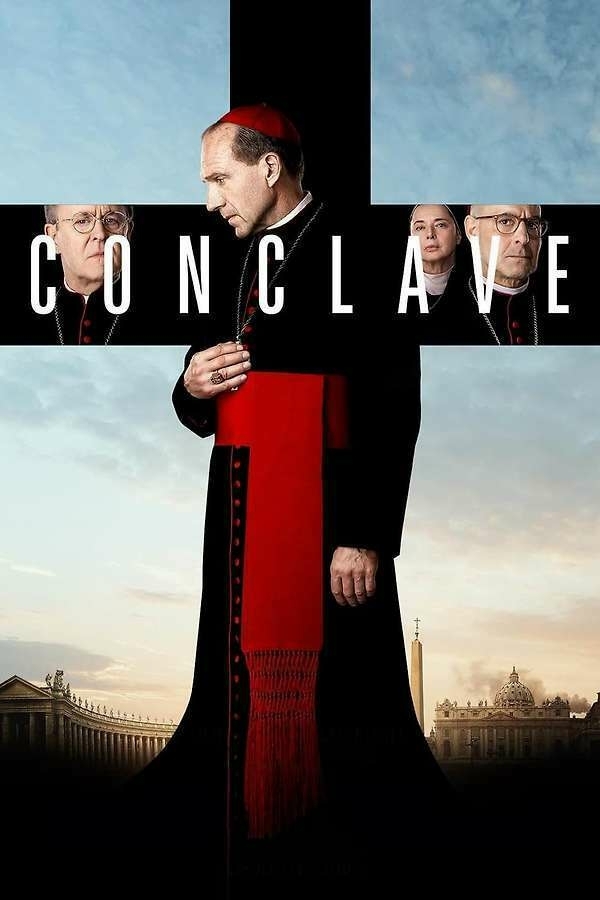
When I was a kid, brought up in the Roman Catholic Church, my Mum taught me that, when a pope dies, all the cardinals get together to choose a new one. God guides them so they vote for who He has chosen, and it has to be unanimous.
Whether or not that unanimity requirement was ever really true, I can't say. But that's certainly not how it happens in this film. I imagine this tale is closer to the reality, humans being political beings with preferences and schemes. And God not existing, of course. Or, if 'He' does, certainly not taking that kind of hand in human events.
I enjoyed this story of the events after an unnamed, imaginary pope's death. It's well acted and beautifully shot. It does have one or two moments that tend to the over-theatrical, let's say.
But I have to wonder why the filmmakers chose to tell it, and why now. It's an adaptation of Robert Harris's novel from 2016, and could ask the same question of him: why that story, whey then?
And I guess you tell the story you want to tell, and why not? If other people enjoy it, or get something from it, that's all that matters, really.
📚 Books 2024, 23: Death's End by Cixin Liu, Translated by Ken Liu

I laugh gently at my past self, musing that this volume, based on its title, might have a less bleak universe-view.
Reader, it does not.
In fact, that’s the thing I liked least about this whole trilogy, the dark view of the universe, of sentience. The idea that every species that develops intelligence and advances to the point of thinking about space travel and the idea of possibly communicating with other intelligent species; that they would all have a xenocidal1 instinct. Have it, and routinely, casually act on it, by wiping out the star systems of other species they detect.
I’m not saying it couldn’t be so. As one explanation for the Fermi paradox it’s exactly that: one explanation. But it’s just too fuckin bleak for my tastes.
Otherwise, this story, and the trilogy as a whole, is jam-packed with ideas, stuff about relativity, higher and lower dimensions, all sorts of good hard-SF stuff. The characters are kind of blank, undeveloped: I don’t think they’ll be sticking in my memory. But I enjoyed it overall.
Apart from when I was annoyed/disturbed/upset by the dark forest idea.
Your central idea: I do not like it.
-
The word is Orson Scott Card’s invention, but/and it’s a good one. ↩︎
It Happened One Night, 1934 - ★★★★
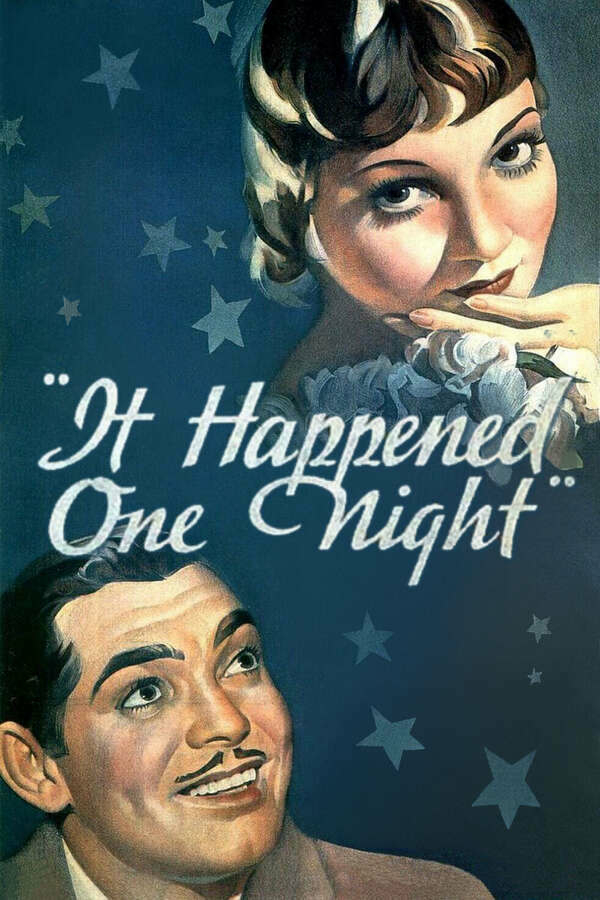
Great screwball comedy. Lots of fun. Don't know why the poster is in colour when it's a black & white film.
Dirty Rotten Scoundrels, 1988 - ★★½
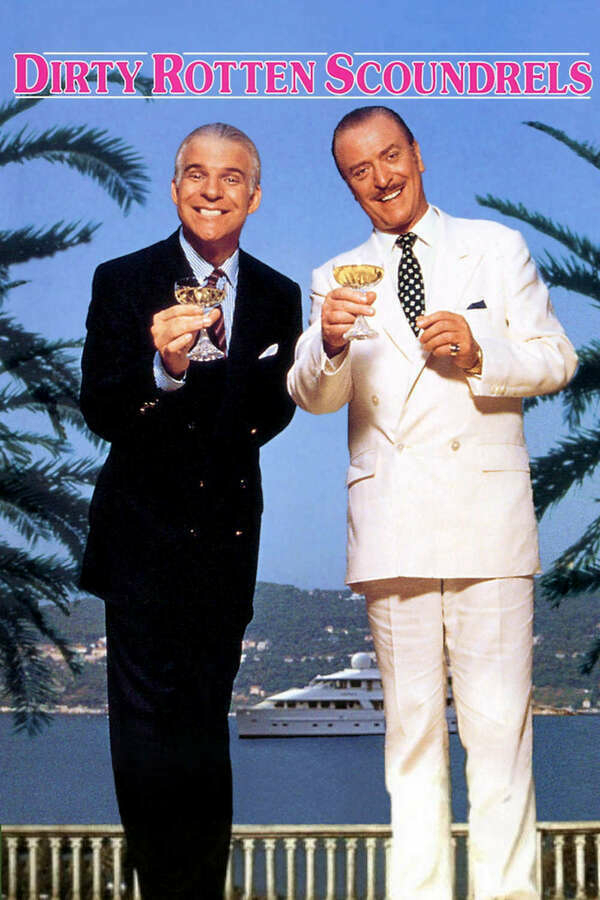
Daft film about con men. I think I saw it back when it came out, but didn't really remember it.
I'm a week or so behind with posting this.
Trumpeting
I was shocked, but not exactly surprised, by the US election result. Or no: I was surprised. I think I had somehow internalised that idea that Kamala Harris would win. It seemed unthinkable that Americans would elect Trump again.
But then, it seemed unthinkable that they would elect him the first time.1
We shouldn’t be too surprised though. Among the presidents in my lifetime, we’ve had Nixon, Reagan, Bush, and W Bush. All of them considered to be dangerous warmongering borderline fascists at the time. And/or comical and incompetent choices, to consider Reagan and W Bush, specifically.
Yet America elected all of them (notwithstanding that the popular vote nearly always favoured their Democratic opponent).
Trump, of course, rolls the ills of all of them up into one great ugly package, and adds narcissism on top. And the times could hardly be worse for women in America in particular, with reproductive healthcare under attack with the overturning of Roe v Wade.
What can you do, though? Life goes on. We’ll get through it, except for those of us who don’t.
-
For some reason I couldn’t find that post when I wrote this, so I said, ‘I’d link to my post from back then, but apparently I didn’t make one. Only a couple before the election and this general one in early 2017. Sometimes it’s all too much to write about.’ But I did write about it, and used the same title as on this post! Oh dear. ↩︎
📚 Books 2024, 22: The Dark Forest by Cixin Liu, Translated by Joel Martinsen

This is somehow much less obscure and strange than the first one. I don’t know how much that is to do with it having a different translator, but it’s possible. The third one is back to Ken Liu, who translated the first one, so maybe we’ll see.
The other odd thing is that when I added this to Micro.blog’s Bookshelves feature, it came up with a subtitle I’ve never heard of before: ‘Remembrance of Earth’s Past, #2’. On the book’s title page, and in any other discussion I’ve heard of, it’s always referred to as ‘The Three-Body Trilogy’.
Getting to the story itself: perhaps the least believable thing about the whole thing is the idea humans could be convinced to believe that an alien invasion force was on its way to Earth and would arrive in 450 years. To believe and act toward resisting the force or ameliorating the situation by escaping or anything else.
I mean, in the real world we can’t even get people to believe in, get governments and businesses to act on, the climate emergency, and its effects are visible day by day.
The climate is largely ignored in this book, as well, though in the latter part, set two hundred years after the start, we see some extreme desertification in China.
It’s pretty bleak in places, in its philosophy, this one; especially as regards the Fermi paradox, or a solution thereto. But it leaves us at a point where I’m thinking, ‘Where now? That feels like a decent ending.’
But Death’s End (great title, and potentially a much less bleak philosophy, if it matches the title) is sitting waiting, all 700+ pages of it. Why does each volume of a trilogy tend to be longer than the one before?1 So we’ll see where that takes us.
I enjoyed this. There’s a lot of telling, and the characters maybe aren’t very clearly differentiated, but it’s full of ideas.
-
Not the ur-trilogy, The Lord of the Rings: a large part of The Return of the King was appendices, making it the shortest of the three. ↩︎
Crouching Tiger, Hidden Dragon, 2000 - ★★★★★
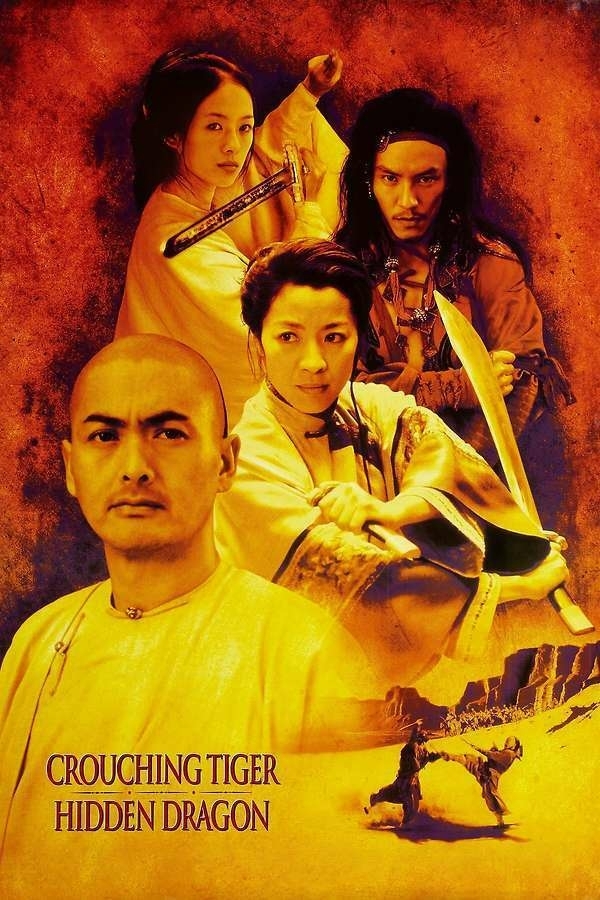
An early showing at the BFI IMAX at 11 am on a Sunday! But the chance to see this incredible film on a giant screen was too good to miss.
I first saw it a year or two after it came out, probably on DVD. So twenty or more years ago; and pretty much all I remembered was the spectacle: the fighters running up walls and flying over rooftops and so on.
I had exactly zero memory of the story. Which is strange, because it's a pretty good one. That 'Sword of Destiny' is actually cursed, in my opinion, but you know: there's always going to be some youngster coming after the greatest gunman; someone trying get the Elder Wand from its current owner. That kind of thing.
I'm giving this the coveted five stars because I don't really see how it could be better than it is. That puts into the group of 'One of Martin's favourite films,' and that's fine, because I think it belongs there.
Panel discussion afterwards with a group of women who work in action films in the UK in various ways, including a couple who are stunt performers. That was good too, though people need to be more conscious of their microphone technique in a big space like that.
Persepolis, 2007 - ★★★★
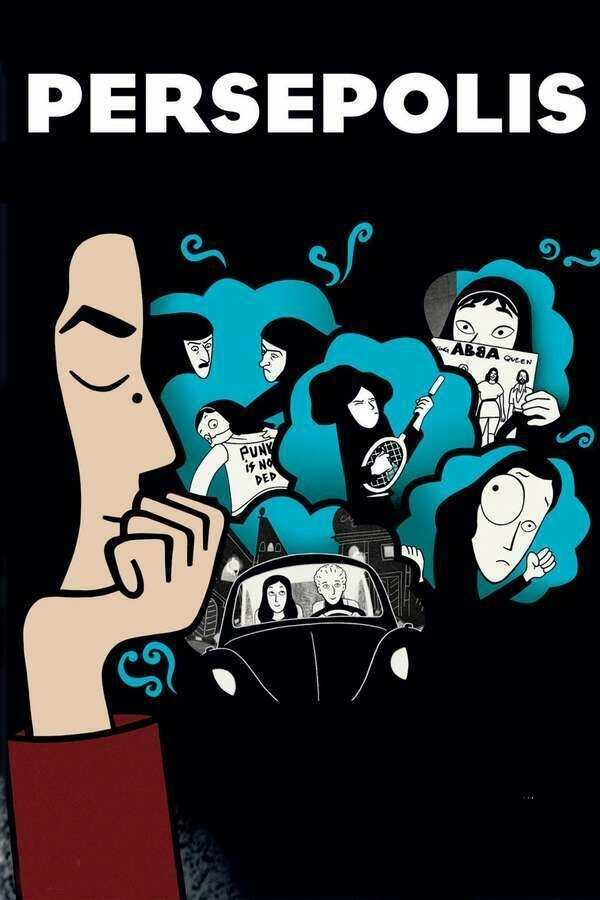
Great animated film about a girl growing up in Iran through the revolution and overthrow of the Shah, the war with Iraq, and the start of the Islamic regime. As such it's pretty horrific in places.
She escapes in part by being sent to live in Vienna with a friend of her mother, who kicks her out after a few days. Various places to live and experiences ensue before she goes back to Iran as a young woman.
And gets more shit from the Islamic regime before leaving for good to live in Paris.
Autobiographical, based on Marjane Satrapi's graphic novel, and adapted and co-directed by her, too.
Memories, Facebook, and The Clash
It seems Facebook still has the odd use, apart from keeping in touch with family and friends who still use it. I popped in late last night, and it told me I had memories on this day. It seems the 29th of October has been a day on which I’ve often posted in the past, because there were several. But the one that really caught my eye was this one:

15 years ago, it tells me, in 2009, I wrote:
Jason Ringenberg doing The Clash’s ‘Ivan Meets Gl Joe’: a thing of rare beauty. Spotify URI: http://is.gd/4Hcr7.
Now that’s quite telling, in several ways. First of all, remember the is.gd URL shortener? Remember URL shorteners that aren’t t.co?
Also, I haven’t used Spotify in a long time, being a happy Apple Music subscriber. But that doesn’t matter. What’s really weird is that I have absolutely no memory of Jason (out of Jason & the Scorchers, as I’m sure you know) doing any Clash song, much less a surprising choice of Sandinista album track.1 And back then I was listening to Jason quite a lot.
Obviously I quickly searched for it on Apple Music. To find that it’s part of an album. Not one by Jason, though. The Sandinista! Project2 is a compilation album of covers of the entirety of Sandinista by different artists.
Why was I not told such a thing existed?
Of course, it’s entirely possible that I was told of it, one way or another. Some passing mention, a mental note, quickly forgotten… maybe it was mentioned in Jason’s newsletter or some such.
I mean, it’s not a totally off the wall idea. It’s subtitled ‘A Tribute to The Clash’, and I’ve had or listened to things like it before. I had something called London Booted once, which was sort of techno-ish covers of some or all of the tracks from London Calling. And I remember listening to a reggae version of that album, or tracks from it, at least.
But this is every track on what is famously a triple album. Yes, including ‘Career Opportunities’ (though not, to be fair, ‘Blowing in the Guns of Brixton’). And the great thing about it is, almost no track is a carbon copy of the original. We get jazz instrumentals, ska versions, rocked-up versions of ones The Clash took slowly, and everything in between. Most of the performers are little known, or unknown, to me at least. But we get Katrina of Katrina and the Waves, Jon Langford of the Mekons, Wreckless Eric, The Coal Porters, and of course the aforementioned former Scorcher.
It is really, really good. Highly recommended if you’re a fan, and even if you’re not, I imagine you’ll find something to enjoy. Go on, find it on your favourite service here.
Incidentally, I love that the label it’s on is called 00:02:59 Records. ‘The band went in/And knocked them dead/In two minutes fifty-nine,’ as ‘Hitsville UK’ says.3
-
Not that Jason being a fan would be in the least surprising. ↩︎
-
I don’t remember the the exclamation mark being part of the title. But the Wikipedia article renders it that way, and indeed, there is an exclamation mark right there on the cover. Still, I don’t think we wrote it that way back in the day. ↩︎
-
Katrina’s version runs to 3:44, but then the original is 4:22 or so. ↩︎
📚 Books 2024, 21: The Three-Body Problem by Cixin Liu , Translated by Ken Liu

Spoilers below.
This is a really strange book. I know it’s probably cultural differences in storytelling style, and what have you. But there is something deeply odd about the way this is told. I can’t quite put my finger on what it is (and at least part of it will be to do with the translation).
At a plot and character level, one thing that surprised me is that when someone starts seeing unexpected visual effects — specifically, a countdown timer superimposed on the world around them — they don’t ever seem to think that the explanation is they’re actually in a simulation. That would seem like the logical first attempt at an explanation, given the recent history of SF and indeed discussions outside of it.
We never learn what was meant to happen at the end of the countdown. And (not connected to that) the character we’re first sympathetic to betrays all of humanity!
I liked the early parts about the Cultural Revolution in China. They linked surprisingly well into my recent Nineteen Eighty-Four deep dive. Which is amusing because not long ago I read something about someone encouraging someone else to read this, where they said you just had to get past that part to really start enjoying it.
I did enjoy it, mind. I went right out and bought the sequels and have started The Dark Forest. I just find it weird. And there’s nothing wrong with that.
This is actually a reread, but it’s nearly a decade since, and I only remembered two scenes.
Spectre, 2015 - ★★

It’s a Bond film. What can I tell you? It’s fine. There’s no real tension, because you know he’s going to survive.
1984: A Year With Gravity
Ministry of Plenty
It’s 2024. It’s 40 years since 1984. So I guess that’s why there have been a lot of things turning up that are related in one way or another to George Orwell’s Nineteen Eighty-Four1. It’s considerably more than forty years since the novel was published: more like 75 years. Which is a memorable enough number in itself.
At Worldcon in Glasgow in August, the last panel I went to was about the book. People discussing when they had first read it, how it had affected them, the effects it had on literature and culture more broadly, and so on.
Then a few weeks later the podcast of the BBC Radio 4 programme In Our Time dropped into my feed, with an episode about it. It was described as a ‘summer repeat’. I assume the programme is off the air but they like to keep the feed fed. It was originally broadcast in 2022, so nothing to do with any anniversaries in this year, but no matter.
All of this served to remind me of two things: one, that it was high time I read it again. And two, since read it in my teenage years and never since, I had shamefully never quite read all of it. Because there’s that bit in the middle where Winston is reading ‘The Book’, as it’s called. And when you’re fourteen or fifteen that can seem terribly dull and easily skippable.
Also at the convention2 I picked up a copy of Ken MacLeod’s new collection, A Jura for Julia. You might guess from the title that there’s some sort of connection, what with Julia being the only female character in the original book, and Jura being where Orwell spent the last months of his life writing it.
And indeed, the collection is bookended by two connected stories comprising a sequel to Orwell’s novel.
So I was going to revisit the original and then read Ken’s stories. But I realised I didn’t actually have a copy. I think I read it from the library all those years ago. We got our son a copy at some point, but that’s either with him or in a box in the basement. So I decided just to buy a new one.
While I was in Foyles I noticed another connected work: Julia by Sandra Newman. I remembered reading about this when it came out and thinking I’d like to read it. It’s a retelling of the story of Nineteen Eighty-Four, from Julia’s point of view. It came out last year, so I’m sure author and publisher had anniversaries in mind, and there’s nothing wrong with that.
Not Forever
So what about these books, then?
There are two things Ingsoc got right, I mention in passing: going over properly to the metric system — which leads to the oddity of a prole barman who has never even heard of a pint — and going to full use of the twenty-four-hour clock, giving us that famously startling opening line about the clocks striking thirteen.
Not much else, though. It’s a bit odd thinking about it now that the ideology is called ‘English Socialism’ when the geopolitical bloc Airstrip One is part of, Oceania, is clearly dominated by America. The renaming of the UK makes that clear. And indeed, the switch to decimal measurements and twenty-four-hour time are even stranger, given how America in our world is the biggest holdout against those.
I suppose the ‘English’ in ‘Ingsoc’ could mean the language. But a socialism dominated by America? Something that calls itself socialism, at least: it’s no more socialism than Germany’s ‘National Socialism’ was.
I’ve said before that I dislike dystopian fiction as genre or background to stories. I wonder if that dislike was caused in part by early inoculation with this work. But what I found really weird about reading it after all these years is how weirdly cosy it all felt. Maybe it’s just because I knew what happens; maybe because there are these sequels by other hands to consider; or it could be somehow inherent in the writing. But I had no real sense of bleakness, nor even of menace. Strange, really.
It is, of course, a tragedy, among other things. Winston and Julia know that they’ll be caught by the Thought Police and taken to the Ministry of Love eventually; but they believe that, whatever they have to go through, there will be a core of them, deep in their hearts, that will survive, uncorrupted, undefeated. I was reminded of Evey, in Alan Moore and David Lloyd’s V for Vendetta. About how you’ll survive — maybe win — as long as they can never reach that last half inch of you (I write from probably inaccurate memory).
That turns out not to be true for Winston and Julia, as they each betray the other. O’Brien’s assertion that ‘We will empty you out and fill you up with us’ proves true; and the novel closes with Winston loving Big Brother. There is no hope. A boot stamping on a human face.
Except, then we get the appendix. It tells the story of Newspeak, and does so wholly in the past tense, describing plans the party had for the minimal, stripped-down language. How it was expected to limit the capability for thoughtcrime — for thought itself — in the populace forced to use it. But it is presented as if it were an academic work, part of a history of the Big Brother times in what was then called Airstrip One, and is now called Britain again.
Hope in an appendix. I like it.
Keeping it Short
So we come to the first sequel I want to speak of, which is composed of Ken MacLeod’s two short stories. ‘Nineteen Eighty-Nine’ picks up on Winston’s story. He’s taken from the Chestnut Tree café thinking he’s finally going to be killed. But in fact it’s the revolution. Big Brother and the party are overthrown. Winston is to be Minister of Truth in the new government.
And then in ‘A Jura for Julia’ it’s a decade or two later. Julia is a researcher in ‘computational literature’, mechanical writing. She used to be a mechanic who worked on the machines that created cheap novels for the proles. Now she’s an academic studying the technology behind the machines. She travels to Jura because she has heard there is an important link there to the history of the machines. What she finds ties her story and Winston’s together with Orwell’s in a fascinating way.
A Woman’s Perspective
I hadn’t heard of Sandra Newman before Julia, but she’s written several books, and been nominated for various awards. This one is authorised by Orwell’s estate and tells the familiar story from Julia’s perspective, expanding it both in worldbuilding, character, and time.
It’s a much richer story than Orwell’s, in that Julia’s character is dramatically expanded from the original, and we learn a great deal about the society, or the various societies that exist in Airstrip One. It’s all well done, very convincing, and completely in keeping with the original. There’s nothing added that couldn’t have been imagined in Orwell’s time.
Julia the character is not much more than a cipher in the original, and here she has a rich inner life, and is wonderfully and believably changeable.
One chapter opens with the line, ‘She was in Love.’ Which jars you for a second, because the previous chapter ended with her and Winston’s arrest. Till you remember that she refers to the ministries just by their key words: ‘Truth’ for the Ministry of Truth, and so on.
It takes us to a an ending not so very different from MacLeod’s but perhaps a more ambiguous one.
And that’s enough Nineteen Eighty-Four for a while, and enough 1984, too, though it strikes me that the novel I’m writing at the moment is set then. It’s a year that still has a massive gravitational pull on the imagination.
Adam's Rib, 1949 - ★★½
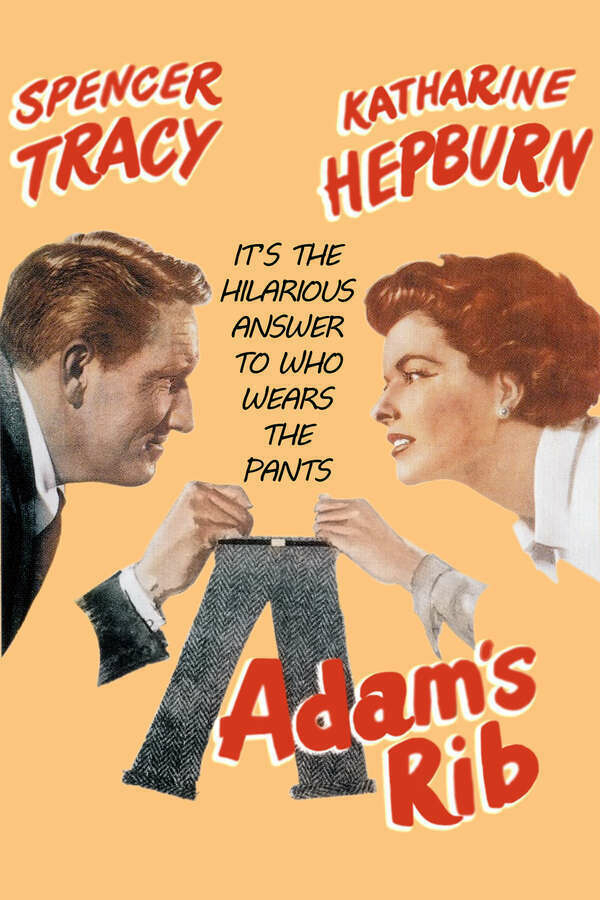
Moderately amusing Spencer Tracy/Katharine Hepburn film about two lawyers. He's an assistant DA, she's a defence attorney. How could they not end up on two sides of the same case? Could it be about anything other than a woman trying to shoot her philandering husband?
It's pretty good on discussing the law and how it should be applied, though not exactly deep. Enjoyable enough, though.
Evil Under the Sun, 1982 - ★★½
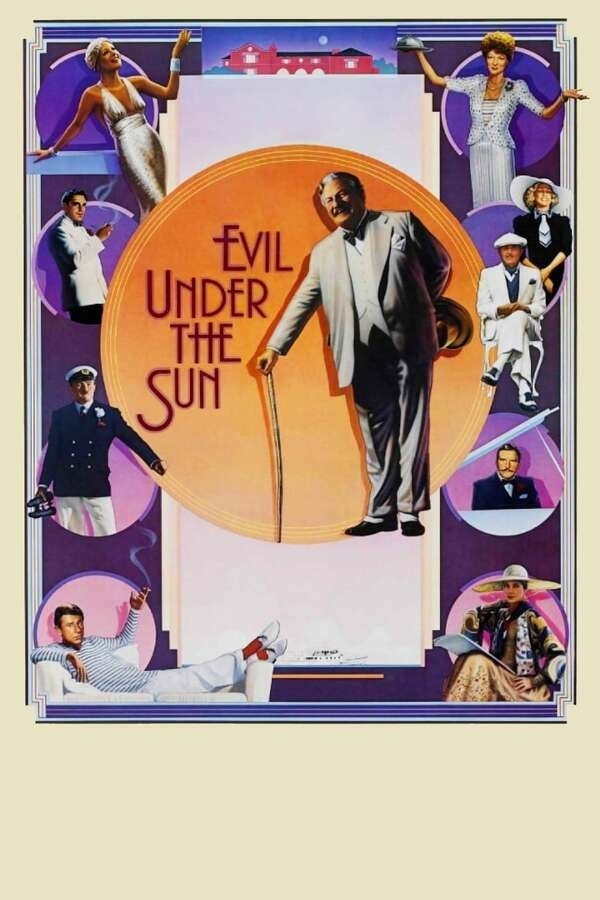
After our recent slow binge of the TV Poirot series, which I don't think I've written about here, a small look at one of the other actors who played the great Belgian detective. To wit, Peter Ustinov.
At first I didn't think I was going to enjoy this. Ustinov isn't David Suchet, and all the other actors seemed to be hamming it up to almost comical levels. But it settled down and/or I adjusted to it. I enjoyed it enough on the whole.
Not a great detective movie, but a pleasant enough one.
California Suite, 1978 - ★★★
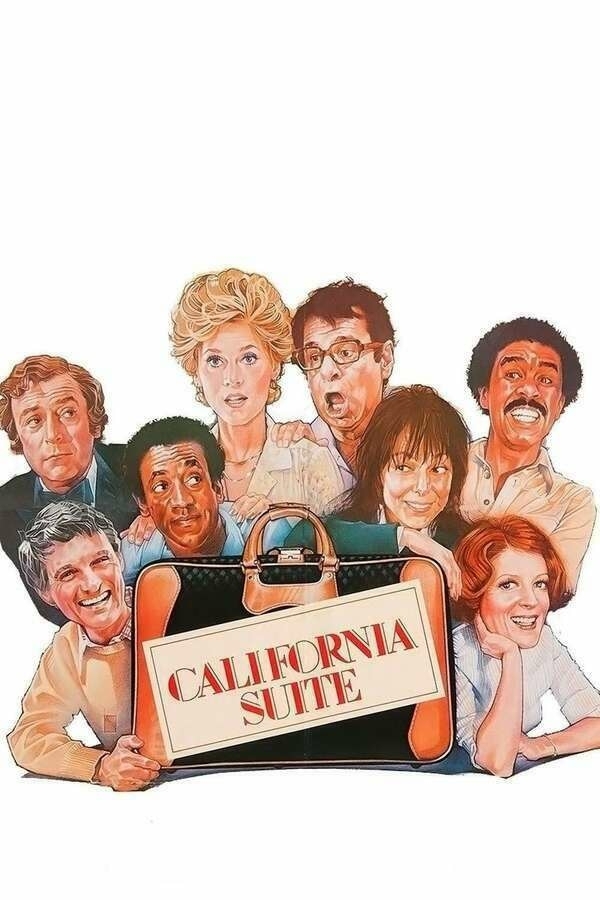
This quadripartite tale of four groups (three couples and one pair of couples) at a Los Angeles hotel on the night of the Oscars is, inevitably, a tale of parts.
We decided to watch in honour of Maggie Smith, who died the other day, and who won an Oscar for her role as an actress nominated for an Oscar. That feels like a sort of irony, but is nothing to do with the film itself.
To my mind we have two good stories — the Maggie Smith/ Michael Caine and the Jane Fonda/Alan Alda ones — and two others that vary from farce to racist stereotyping, without adding much to the overall experience.
Which is a shame, because the two good parts are pretty good.